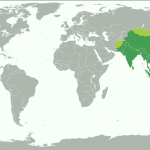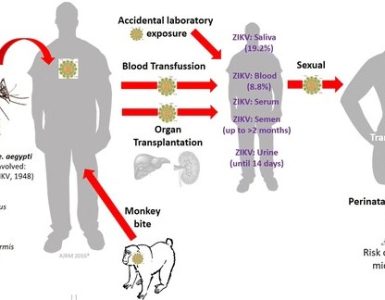 New infections are on the rise among some groups of adolescents in the Asia-Pacific region and globally, reveals a report released by UNICEF. The report titled ‘Adolescents: Under the radar in the Asia-Pacific AIDS response’ was released a day before the World AIDS Day that is celebrated on December 1 every year.
New infections are on the rise among some groups of adolescents in the Asia-Pacific region and globally, reveals a report released by UNICEF. The report titled ‘Adolescents: Under the radar in the Asia-Pacific AIDS response’ was released a day before the World AIDS Day that is celebrated on December 1 every year.
According to the report, more than half of the world’s adolescents live in the Asia-Pacific region, out of which five hundred million adolescents live in just four countries — China, India, Indonesia and Pakistan, with HIV prevalence concentrated in big cities like Bangkok, Mumbai and Jakarta. It further reveals that 1,000 adolescents are newly infected with HIV every week in the region.
“Adolescent age group is a cause of concern. We are trying to have an awareness programme where we want to spread information on safe sex, HIV and other sexually transmitted diseases. We are also giving special counselling to children who got HIV at the birth and are now in adolescence age,” said Dr Shobhana Tehra, joint director, Maharashtra State AIDS control Society (MSACS).
Risky behaviour that can lead to HIV infection often starts in adolescence. The report also notes that this high-risk behaviour could be attributed to increased use of smart phones and other devices, giving easy access to mobile dating applications which increases the opportunity of casual sex. Consequently, the HIV infections are on a rise among the teenagers.
The data shows that these new infections coincide with an increase in risky behaviour, such as unsafe sex with multiple partners, coercive sex and sex under the influence of drugs, inconsistent condom use and a lack of knowledge about HIV. In Mumbai, between April 2015-October 2015, the HIV positivity among those tested was 1.09% in 15-24 age group. In Maharashtra, in 2014-15 9% of the people living with HIV/AIDS is in the age group of 18-25.
Dr Mandar Kubal from Infectious Diseases & Pulmonary Care, Chembur, said: “A good health education protocol in schools and colleges, stressing on the importance of safe sex and on sexually transmitted diseases is a must. Due to easy access to the internet, the teenagers might get a wrong idea about sex, because of dating apps and pornographic websites. It is extremely important that the adolescents be taught the right thing and a strong sex education is necessary for that.”
According to the figures provided by Mumbai District AIDS Control Society (MDACS), among the people newly infected with HIV, 78.3% are in the group of 15-49 years, 36% are women.
“Although maximum risk is among the adolescents as the report suggests, infections are likely across all age groups due to mindsets, lifestyle, high-risk behaviour, etc. in India. Awareness and education about responsible lifestyle, using protection, making sure that you get tested, etc. are the most important tools to prevent new infections,” said Dr Om Shrivastav, Infectious Diseases Clinic, Director at Jaslok Hospital & Research Centre.
Source: dna

















